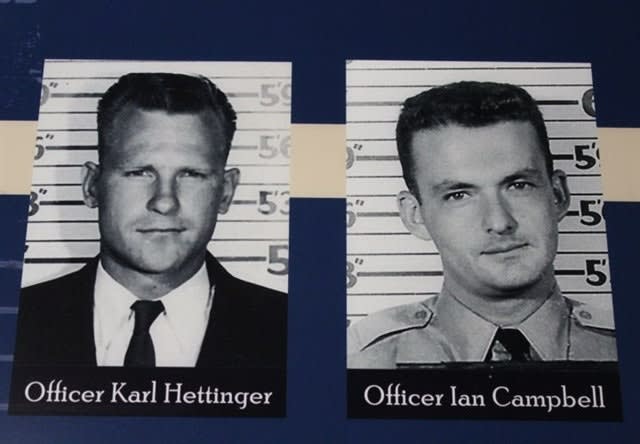"The Onion Field" was one of those occasional police incidents that changes the game for all of us in law enforcement. Prior to this incident, officers were occasionally disarmed by suspects, who then fled without doing violence. In Los Angeles alone in the weeks prior to "The Onion Field," three officers were known to have been unarmed, but unharmed.
This time was different. After Campbell and Hettinger (both ex-Marines) were disarmed and kidnapped, Campbell was murdered while standing at gunpoint with his arms up in the air. The crooks (both now
deceased
) fired at Hettinger. He managed to escape, but only physically. Hettinger was doomed to a life of what we now call post-traumatic stress disorder (PTSD), which was unheard of in the 1960s.
Younger readers may scratch their heads. "How could this have happened?" The answer is found when you realize that in the past half century you have had the benefit of improved tactical training that came at the cost of the blood and minds of officers like Ian Campbell and Karl Hettinger.
Consider these phrases—officer-survival skills; weapon-retention skills; improved holsters; training to not ever give up your gun; the warrior mindset; pre-determined code words between partners that mean, "I'm in trouble, SHOOT HIM NOW;" physical-fitness emphasis; front- and rear-gun takeaway training; close-contact shooting; back-up guns; hideaway guns; and finish the fight.
My first case as a use-of-force expert 23 years ago involved a California Highway Patrol officer who literally saved his own life by killing the suspect with a five-shot back-up gun he wore on his boot. He had lost his duty pistol in a knock-down, drag-out fight. I sure hope YOU carry a back-up gun.












